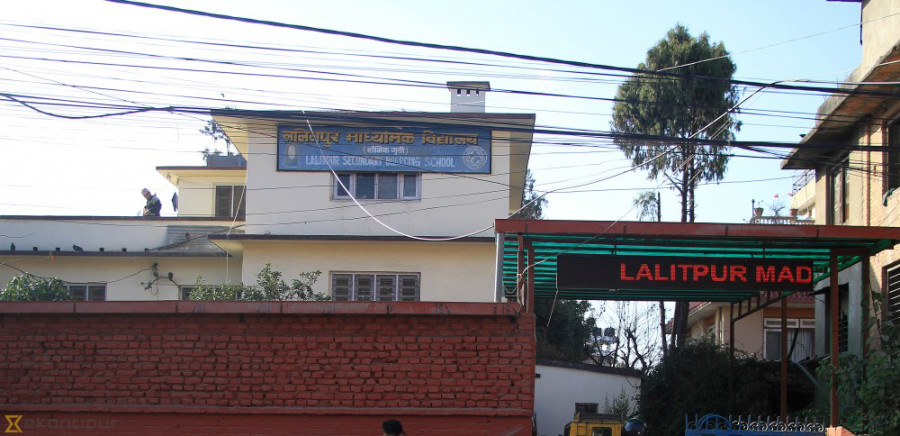National
Investigation committee report clears Lalitpur Madhyamik teachers accused of sexual abuse
Two months after an investigative committee was formed to look into allegations of sexual abuse against three teachers at Lalitpur Madhyamik Vidyalaya, the committee has cleared all three of them, saying it couldn’t find sufficient evidence against them.
Marissa Taylor
Two months after an investigative committee was formed to look into allegations of sexual abuse against three teachers at Lalitpur Madhyamik Vidyalaya, the committee has cleared all three of them, saying it couldn’t find sufficient evidence against them.
The report, which was submitted on Monday evening, concludes that because the alleged sexual abuse happened more than 10 to 15 years ago, the committee was unable to find definitive evidence against any of the three perpetrators—Bodha Raj ‘Basu Tripathee, Sumanta ‘Suman’ KC, and Gokul Sharma.
The committee, which included elected public officials from Lalitpur, and parent, alumni and teacher representatives, was formed after a Post investigation uncovered decades of sexual abuse of students by mathematics teacher Tripathee. After the initial report was published, more students came forward, also accusing KC and Sharma of sexual misbehaviour and abuse.
The committee’s report, however, has recommended that the school transfer Tripathee from teaching to the administrative division. If this cannot be done, the committee has recommended that the school retire Tripathee with all benefits. Tripathee was initially suspended, and has been on medical leave following a suicide attempt.
“As there is no evidence to support the accusations, there was not much we could do,” said Bikash Man Shrestha, Lalitpur Ward 5 Chairman and coordinator of the investigative committee. “We’re not a legal authority. Our job was to investigate the matter and come up with a report, and that is what we have done.”
If people are not satisfied with the committee’s recommendations, Shrestha said they could take the matter to court themselves—“with evidence.”
The report does not provide much information pertaining to the investigation that the committee undertook. Even though the final report alludes to how the committee spoke to several victims, no names are mentioned, neither is the number of people they spoke to. The report instead reiterates multiple times how the “events took place 10, 15, 20 years ago” and how the committee could not find “any evidence to support the claims of the victims.”
KC, the report states, admitted to “pinching” students as punishment and how that could’ve been “misunderstood.” KC then apologised to some students in the presence of committee members. However, the committee members said they were unable to ascertain if his behaviour constitutes sexual misconduct, and recommend that he be advised to change his behaviour.
Concerning Sharma, the report concludes that no evidence was found to back accusations of sexual misbehaviour.
The report places great emphasis on the availability of evidence, even though it does not explicitly state what this ‘evidence’ would constitute, a response that many women in the #MeToo campaign have had to answer. It is unclear from the report how many student testimonies were considered and how much weight the committee members ascribed to them.
“How can one apologise and get away with it?” said Salina Karki, one of the former students who had accused Sharma of sexual abuse. “Will Gokul [Sharma] sir’s apology erase the bad memories from my mind?”
Related stories
— Tribhuvan University lecturer sexually harassed female students for years
— Why #MeToo never really took off in Nepal
— Fed up by harassment, Nepali women are going online to share their #MeToo stories




 20.78°C Kathmandu
20.78°C Kathmandu













